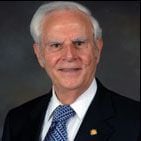Avoiding Plagiarism: Sign of Academic Strength
Charles Mercieca, Ph.D.
Honorary President of SBS Swiss Business School
Plagiarism is described as the crime of literary theft. Stealing has been considered a crime for many centuries dating back to the time when God gave Moses the Ten Commandments. One of these commandments stated clearly: You should not steal. It is ironic that while students pursue their school studies to saturate themselves with virtues, they may end up imbuing themselves with vices instead. This remains a matter of choice. Plagiarism may also be described as the art of deceit by making people believe something that it is not true.
Integrity of Character and Personality
The best traits that a graduating student could possibly have may be enlisted as integrity of character and personality. In fact, those that carry such traits are usually very much admired and everyone in the right senses would seek for their companionship and association. Some 2,500 years ago, Aristotle defined friendship as the greatest gift we could possibly have. In this regard many proverbs were created one of which runs as follows: A friend in need is a friend indeed. A genuine friend is expected to be always candid and honest.
While virtues are signs of strength, vices are signs of weakness. In fact, experience has demonstrated that one achieves more by humility than pride, by patience than anger, and through generosity than selfishness. Quite a few of us are afraid to admit mistakes because of the fear our element of credibility may be radically shaken. We may forget quite often that to err is human and to forgive, divine. One of Frank Sinatra’s songs, which was quite popular, runs as follows: Everybody has a right to be wrong at least once.
When people really strive hard to be themselves, they often catch the attention of others and become quite admired. They often stimulate admiration and respect and they tend then to have genuine friends. In plagiarism we put on the garb of someone else as to make others believe not what we are but what we want them to think that we are through the artificial façade we put on.
In the long range, it would be much better that we present our academic work as we genuinely structured it and pass at the “B” level, than managing to get though with an “A” level through literary theft, that is, dishonesty. Let us keep in mind that we are truly respected in life more through the integrity of our character and personality than through all the wealth and money that we could possibly accumulate while revealing weakness in both our character and personality. If we were to give a rapid glance at some of the most admired and respected people in history we would discover that such is the case.
Unique Experience of Plagiarism
During my 34 years of teaching at Alabama A&M University in the United States, I did have students who every now and then presented assignments in class that were plagiarized. I treated them nicely but firmly showing them that the habit of plagiarism would reflect a negative trait in their character and personality. After explaining that in human relations honesty was always the best policy I demonstrated that the art or technique of deception was a sign of dishonesty, which means one cannot be easily trusted. Fortunately, they all ended up expressing regret.
I recall there was only one case in my long teaching career when I discovered that one of my students copied an entire article from a journal he found in the university library and presented to me under his name, like he really wrote it. It was entitled: Space Age Philosophy and the Academic Revolution of the 21st Century. I raised my eyebrows because that happened to be the article I myself wrote a year earlier. So I called him to my office to “congratulate” him for his “excellent” article. He looked cheerful and he thanked me. Then I opened my desk drawer and pulled out the Peace Progress Journal with this article in it.
I asked the student: “Have you ever by chance come across this journal?” He looked with surprise and after a little hesitation he said: “I guess so.” “Well,” I added, “this past year I happened also to write an article which carried the same title as yours. And guess what? Every single statement that was made in this article of mine happens to be exactly, word for word, like the article you presented to me as your assignment.” He immediately felt he had no way out and he was quick to remark: “Sorry! If I knew that you wrote this article I would not have copied it. I would surely have chosen another!”
To keep the story short, I explain to him that whether the article he presented as his assignment happened to be the one I wrote or some other article that someone else wrote, the fact remains that we have here plagiarism which is immoral and could be viewed, in a way, also as criminal.
Several institutions of learning I knew took plagiarism so seriously that they have flunked students deliberately and on some occasions students were also expelled. In plagiarism there is nothing to gain but everything to lose. And if plagiarism is developed as a habit there is a high probability of the eventual degeneration of one’s character and personality, as explained earlier. Once this state is reached there seems nothing that one can do since we cannot reverse the clock of history. Fortunately, many of the students that have plagiarized have learned their lesson well and swore never to do such a thing again.
Available Sources of Knowledge
At this stage of history, where we have computers everywhere with access to the internet, along with the great amount of knowledge it carries virtually about everything, it has become so easy for students to make some research there. All knowledge is literally at the tip of their fingers. What students simply need is to jot down all the basic and interesting ideas they come across from which they can structure their own project in a number of ways. After all, let us keep in mind, as they say, that books are written from books. As British educator John Lock tells us, we are all born tabula rasa, that is, with a mind completely void of all knowledge whatsoever.
As we grow older and older, we start learning from our parents, teachers, peers, and anything we may come across in a way as to accumulate as much knowledge as possible. All of this will enable us to make up our mind in choosing between alternatives and in making our own conclusion, which we will communicate with others. In this process, inspiration plays a big role. Quite often people are “inspired” by what we say and do. In fact, since there are no two human beings that are identically the same, we can always serve as an asset to each other in many ways.
Ascetical writers tell us that God’s greatness may be proved by the fact that in His divine plan of creation He decided to make every single individual fully unique, that is, none of us is duplicated till the end of time. If such is the case, then each one of us must have at least one talent that makes us superior to the rest of all the billions of other people on earth. One of the greatest jobs of our schools, colleges and universities everywhere is to help each student, if possible, discover that one unique talent that God gave him or her.
Unfortunately, the vast majority of our institutions of learning everywhere do not seem really to do just that. If students were to develop the habit and determination to search for and find out that unique superior talent that God gave them the problem of plagiarism is bound to become a thing of the past.

Charles Mercieca, Ph.D.
Honorary President – SBS
President – IAEWP
International Association of Educators for World Peace,
an NGO, recognized by the UN

